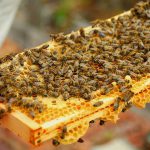
Wellington Sikuka drafted a response for the U.S. Department of Agriculture (USDA) titled “Mixed Reactions to the 2021 National Budget by the South African Agricultural Sector” (2 March 2021). We found it a useful summary of points affecting agriculture and condense it here for the reader.
Excise duties on alcohol and tobacco
Sikuka reports that the 8% increase in excise duties on alcohol (wine, beer and spirits) has been heavily criticized and “is likely to hamper the recovery of the financially distressed liquor industry”.
“The timing of the increase in excise duties also comes at a time when the liquor industry is grappling with the recently implemented minimum wage increases (16 percent), and electricity increases (15 percent). The liquor industry is also still dealing with the devastating impact of national lockdowns due to COVID-19 that the government has been implementing since March 2020”.
Increase of fuel levy
Sikuka reports: “The general fuel levy applicable to all petrol and diesel sales was increased by 4% (15 cents/litre) and the Road Accident Fund Levy was increased by 5% (11 cents/litre). The agriculture industry, especially at primary production level, is a big user of fuel, and this will add-up to the increases in cost of production”.
Land Bank support
Sikuka sketches the background to the money going to the Land Bank – R5-billion (US$337million) in 2021/22, and R1-billion (US$67million) now. This has been to the purpose of supporting the restructuring of the Land Bank, and Sikuka relates that “this has been viewed positively given the relative importance of the Land Bank to the agriculture sector”.
An additional 10,000 extension officers
Minister Tito Mboweni announced that the Department of Agriculture, Land Reform and Rural Development (DALRRD) set aside R896.7 million (US$60.4million) for post-settlement support of land reform beneficiaries. This will include the recruitment of approximately 10,000 experienced extension officers. Sikuka does the math and concludes that the average salary proposed of R89,670 (US$6,038) per year is “way too low and not feasible”.
No increase to the Health Promotion Levy (the “sugar tax”)
Sikuka relates the background to no increases announced on the Health Promotion Levy (the “sugar tax”): December 2020 had seen the launch of the Sugarcane Value Chain Master Plan (https://sasa.org.za/wp-content/uploads/2020/11/SA-Sugar-Master-Plan-1.pdf) to support and revitalise the distressed sugar industry. Hiking this levy would have run counter to the Plan.
Decrease on the Taxation of Biobased Plastic Bags
A reduced levy of 12.5c/bag to be applied to bio‐based plastic bags was also good news to the sugar industry. These are made from renewable feedstocks such as sugarcane and food residue. Although they still contribute to litter and marine pollution they emit less greenhouse gas.
For his American constituency Sikuka writes that “while the impact of the budget to U.S trade is still uncertain, the budget seemed fair and not prejudicial to U.S agricultural exports”.
Find the full report, along with its statistics and graphs at https://apps.fas.usda.gov or by clicking here.
Of relevance to this report, find the following pages on AgribookDigital:
Photo by Fabian Blank on Unsplash







